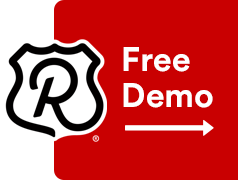Who knew there was so much to cover when considering a new trucking software (TMS) package? Our last post covered “Customer Support” and the importance of understanding the levels of support each provider offers. We’ll now move on to what everyone’s been waiting for: costs.
The reality is, there’s no way to know exactly how much a TMS will cost without working through the process and understanding what you need (and what you don’t). Do not have the expectation that you will be able to learn the actual cost of a TMS provider’s package without contacting a representative. Each LTL carrier’s business model, operational requirements, and staffing skill sets are as different as they are similar. Each of these aspects will have an effect on the overall costs.
According to TruckingInfo.com “a lot of technology has become much more affordable to smaller fleets, as software as a service becomes more common, and telematics and technology companies develop dashboards and other interfaces that help smaller fleets wade through all the data.”
The purpose of this section is to help you understand the fundamental differences in the costs associated with each TMS provider’s package so that you are well informed and able to ask the right questions. We hope this will allow you to achieve a firm understanding of what your new trucking software platform will ultimately cost upfront, as well as year to year.
All providers will differ in terms of what is, or is not, included in relation to actual costs. The actual costs of each core option are typically based on plans and/or levels, such as standard or enterprise. Costs will change based on the applications, programs, and features you select as well as the number of users or licenses you purchase.
Once you have an understanding of how the costs are structured, you need to examine what each option includes, and more importantly, what it does not include.
Costs to inquire about:
Activation and Implementation
-
-
- You should ask what costs are upfront and whether rates are fixed or variable.
- Some providers bring staff on site to help implement their TMS; if this is important to you, find out the cost associated with an on-site implementation.
-
Training and continued education
-
-
- Often times providers include training with the implementation costs, others charge an additional fee.
- Determine whether continuing education is included or if you are required to train new hires down the road on TMS procedures.
-
Customer Support
-
-
- Many carriers think customer support is included. However this may not be the case, ask the question – How is your customer support is billed?
- Some providers have an annual contract for support, others bill case by case. Some issues are non-billable. You may be charged extra for weekend or holiday support.
-
Custom Programming
-
-
- It’s a fact, you will need custom programming at some point because there is no such thing as “one size fits all” software. You should determine the custom programming fee structure as it will vary by provider. Many providers bill by the hour, so it is important to know their rate and understand the difference between custom programming and product enhancements.
-
Data consumption and storage
-
-
- Understanding your data costs is extremely important. If your database is 25G now, will there be additional costs when it grows to 30, 40, 50G?
- Most providers charge a fee for sending and/or receiving data of any kind such as Images, EDI, XML, etc.
-
Updates, versions, and releases
-
-
- We suggest you prepare yourself to pay extra for patches, updates, versions, and releases if they are not covered by your plan.
-
Technologies and integrations
-
-
- For instance, it may cost more to utilize technologies like EDI, or APIs. Understanding the cost associated with each EDI mapping per partner can help you plan your budget.
-
Maintenance and hosting
-
-
- If the provider is hosting your TMS package off-premise then you must be aware of the hosting costs. Every provider will include different services, so it is best to understand exactly what you are getting when you host with a software provider.
-
Hardware and devices
-
-
- For example, their imaging solution may require a specific make and model scanner that you need to purchase.
- Some apps may also require device specific purchases.
-
Changing plans
-
-
- If your company is growing, find out the cost of upgrading your plan for future needs/budget.
-
Billing structure
-
- One-time, monthly, or annual fees are all common ways for software providers to bill their customers. Understand what your fee schedule will look like to avoid surprises.
When meeting with a TMS provider, review the above list of items. We hope this information will help you ask the right questions, and ultimately pick the right partner for your business.
Next we ask, is your potential TMS provider future-proof?
Contact Us to Learn More




Comments are closed.